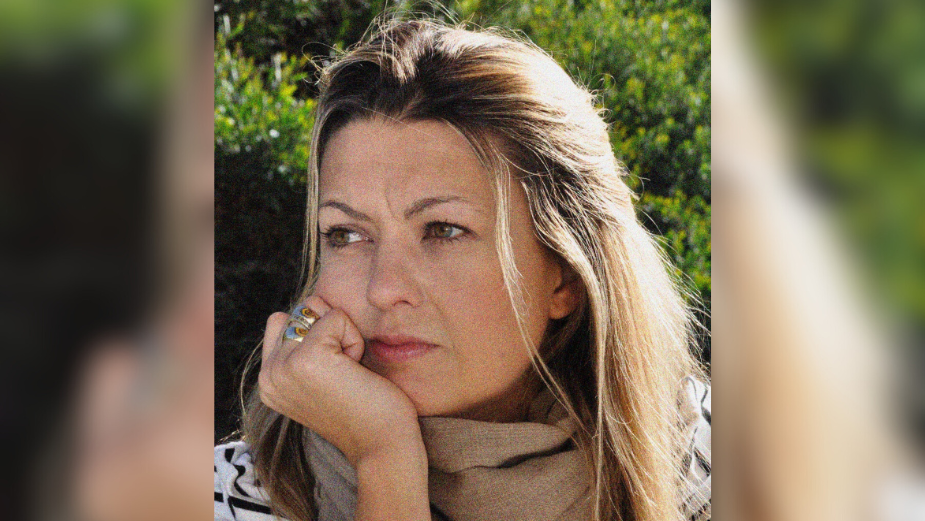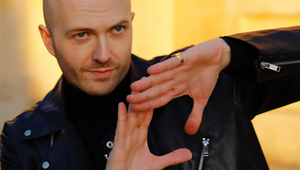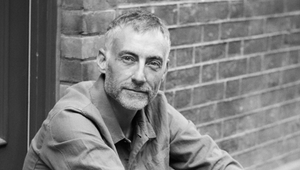
Director Erica Dunton Wants to Make Audiences Feel

Erica Dunton practically grew up on film sets. And not just any film sets but those of David Lynch while he was shooting his weird and wonderful version of Dune with the help of the cinematographer and camera technician Joe Dunton - her dad. Yet her path to filmmaking first took an unpredictable turn with Erica going to law school, an experience she says came in handy when she was making her indies though she’s very happy to “leave it to the experts” now.
Erica’s body of work spans five independent features, like ‘Abigail Falls’, ‘To.Get.Her’, ‘The 27 Club’, and ‘Black Eyed Dog’; four of which she also wrote and produced, with her films picking up numerous awards on the festival circuit. Additionally, Erica loves working in TV - always approaching it with a cinematic angle. She’s shot 23 episodes of television; multiple for HBO Max’s ‘Julia’, Amazon’s hit show ‘The Summer I Turned Pretty’, and Apple’s ‘Bad Monkey’. She also returned for a block of ‘Ted Lasso’ after earning a DGA Nomination for her episode ‘Rainbow’, with two new episodes premiering in May.
In her own words, she’s an “actors’ director” who aims to create trust on set as to Erica that’s the key to great work, whether the actors are established or brand new. Always looking out for great writing and a way to make audiences feel, Erica is excited about joining Great Guns USA and adding commercial and music video projects to her already varied and glowing CV.
Today, LBB spoke to Erica about growing up surrounded by film, her directorial style, and the different perspectives a director must switch between when shooting their own material.
LBB> You grew up in a film-focused environment. Do you have any standout memories that made you fall in love with film?
Erica> I remember spending a lot of time on the sets of Dune in Mexico City when I was very young and dad was shooting there. I’ve read since that if David Lynch saw anything on those sets that looked, ‘normal’ he would change it to make it ‘weird.’ And that’s what I remember – eight stages filled with HUGE, gloriously weird, and otherworldly sets. Lynch was an artist and you could just feel it. That ability to world-build definitely made an impression.
LBB> What’s the first film or TV show that made a real impact on you, from the craft perspective?
Erica> Well, the truly honest answer is ET. I still remember all the feels that movie gave me when I went to the cinema and watched it. There wasn’t a bone in my body that didn’t think ET was real. Spielberg created a whole world and he had me hook, line, and sinker. Everyone in front of and behind the camera worked together to create that movie and I have never forgotten how thrilling that was.
A scene from Ted Lasso, Season 2 Episode 5 - Rainbow
LBB> You graduated with a law degree before pursuing film. Does the law degree ever come in handy in your work today?
Erica> I tell my mother it does! She always wanted me to be a lawyer. The reality is that it did when I was making my indies, especially when I was putting actor or financing or sales deals together but now, I have a great team who protect me in all things legal. For me learning the law was like learning a technical language so I appreciate that while I can ‘translate’ I also should leave it to the experts and they are experts for a reason, they love the law and that’s why they are good at what they do.
LBB> How would you describe your directorial style? What does being an ‘actors’ director’ entail?
Erica> Bottom line - you have to trust your actors and they have to trust you. It is my job to create an environment where that can happen. Whether it is Vince Vaughn, Sarah Lancashire, Jodi Turner- Smith, Juno Temple or Jason Sudeikis who have been on a million sets or Lola Tung, Mackenzie Foy or Eve Hewson when they are just starting out, it is my goal to put the actors at ease and make sure we all have fun and go home feeling like we did our best work. I have to figure out how their brain works and what they need from me at any given moment on set or in prep. It is a relationship like no other and when you are working in sync with a really talented actor, there is no better feeling.
I always say, it is not a director’s job to have all the answers but it is their job to find them. You can have a thousand things flying at you on any given shoot day and you must filter what is important and what is not. There is an instinct to it that I think you cannot teach but also that instinct gets sharper with experience. And considering all of that you then have these incredible human beings in front of you stepping up to commit their emotional experience to camera. It is my job to make that as easy as possible for them. I love to create a space where we can just try things. They make work, they may not, but it is great to explore and see where things can lead… moreover it is sometimes important in the edit to turn in different degrees of performance and to provide options within the storytelling. You have to keep it fresh on set, even if it is the most storyboarded stunt or green screen/VFX sequence. My job is to make it feel organic on the day so that you not only get the visuals you need but also the performance.
LBB> Do you feel the influence of other directors on your work? If so, who are they and why are they influential?
Erica> I remember when cinematographer Natasha Braier showed me a Wong Kar-wai film for the first time when we were at film school together and I was blown away. She went on to shoot my first commercial, first short, first music video and first feature and I have always felt her visual influence in my work. Like Wong Kar-wai, she is bold and I know they both empowered me to be bold too. Yet there are also some other classic directors that I just cannot den; Cameron Crowe will always be my hero for making Almost Famous and Tony Scott for Top Gun. I love Kathryn Bigelow for her Hurt Locker and Point Break – I could go on.
Yet my love of directors comes not only from being an audience member but also from my own life. My dad would take me to the labs on the way to school to check the dailies before they went out to set and I remember watching many Alan Parker films that way and falling in love with his work. And, of course, Stanley Kubrick was a big influence in our family and we would visit his sets and that was a whole different world. So for me ‘director influence’ came from many angles and I cannot single out even a few. The number one priority for me from any director is that they make me feel something.
A scene from Julia, Season 1 Episode 4 - Petit Fours
LBB> You’ve written and directed the features Abigail Falls and To.Get.Her - how does the process of making your own script come to life differ from working with someone else’s?
Erica> As an independent director working on your own material you wear many hats and I always felt that - writer Erica would talk to director Erica on set and in prep; then in the edit director Erica would fight with producer Erica to make sure we were making the best film possible for our audience. When you work with your own script you must be able to separate your own experience and understand how the audience is viewing your work. What they need from you as a writer, director and producer to enjoy your film. You can have no ego, it is always about the audience - emotional clarity and efficiency is key.
What I do love about TV is having writers and showrunners by my side on set, when I shoot my own features there is no one who knows all of the words and sees the big picture as much as I do but in TV that is not the case, you’re coming into part of an established team who know the material as well, if not better than you do and that collaboration has been really enjoyable and refreshing.
LBB> Besides features, you also direct TV like Ted Lasso, The Summer I Turned Pretty, and Julia. With the explosion of ‘premium TV’, how different are the two mediums?
Erica> The practical skills I learned through indies translated perfectly to TV as you have to work fast, think on your feet and be a true leader to the cast and crew. But the work you do with the actors, the writers, the DP, production/wardrobe designer etc. is still the same. You are finding a frame, crafting a performance inside that frame and then guaranteeing that it will all work in the edit. You are painting pictures and creating sequences that will move people. TV just moves at a faster pace, the page count per day is higher but the storytelling is still cinema. I don’t think it's in my genes to think of visual storytelling as anything but cinema.
One thing that is different is that as an episodic director coming into a project you are a guest in someone else’s house and you have to respect that. There are sometimes many different demands from a scene from a showrunner’s note to one from a studio exec and it is my job to make sure I get everything I can to protect the script but still play and evolve and elevate the material.
LBB> What kind of creative freedom does directing TV give you that film doesn’t and vice versa?
Erica> I love that in TV there is a longer time to develop character arcs and tell the stories of all involved in a more satisfying way. Also so many fantastic actors are working in television which provides great opportunities for getting really superior performances over multiple episodes. I enjoy doing the first seasons of shows because we really get to set the style and tone as even after the pilot everyone is discovering what works and what doesn’t. With film of course you get a lot more freedom in post, with score, needle drops and sound design. In TV that is rare. But having said that, a lot of the temp songs I put into my TV eps make the final cut which always makes me happy. I love the English band Bear’s Den and I put their song, “All That You Are”, into the director’s cut of one of my recent episodes of Ted Lasso and they kept it and I was thrilled because it works so perfectly for the scenes.
LBB> What kind of scripts do you look for when deciding on your next project?
Erica> I think I’m unusual in the fact that my work spans many genres so you can never really put me in one specific box and I get sent a lot of different material which is great. And at the risk of sounding generic, I am always just looking for great writing. Great characters and a script that elicits emotion from page one and keeps making you want to turn the page. You can have the best actors in the world, the best creative team but if you don’t have the script then none of that matters. I have fallen hard for comedy though recently so I definitely feel myself leaning towards that but having said that I just attached to a pilot that is about as wonderfully dark as it gets, and I can’t wait to dive into the darkness!
A scene from The Summer I Turned Pretty, Season 1 Episode 7 - Summer Love
LBB> You’re recently signed with Great Guns USA - why did you decide to join the company’s roster?
Erica> I really want to do more commercials and music videos and I looked at a lot of production companies but Great Guns USA stood out. Great Guns is clearly a company that understands the ultimate goal of any piece of visual media is to make an audience FEEL something. They also understand that style alone cannot do this and style must always work hand in hand with efficient, clear storytelling and compelling characters and performances. I'm looking forward to working with a group of collaborators who have always looked ahead and to being part of a team who continue to blaze the trail before them. I'm looking forward to working across a spectrum of genres and especially in comedy. I'm hoping to bring the breadth of my storytelling experience to the table and create a space at all stages of the journey to ensure ideas are elevated and a team spirit flourishes.
LBB> What’s next on the horizon for you? Any dream projects you’d like to work on?
Erica> I have several pilots coming up, some that I wrote and created and some that I am working with incredible writers and producers on. They all have fantastic actors attached and that is very exciting. I also have an indie feature I wrote set up with Killer Films who are incredible, and a big studio comedy which will be a lot of fun. Moreover signing with Great Guns USA has been wonderful as it will give me the opportunity to do more commercials and music videos which I love and am very excited about.















